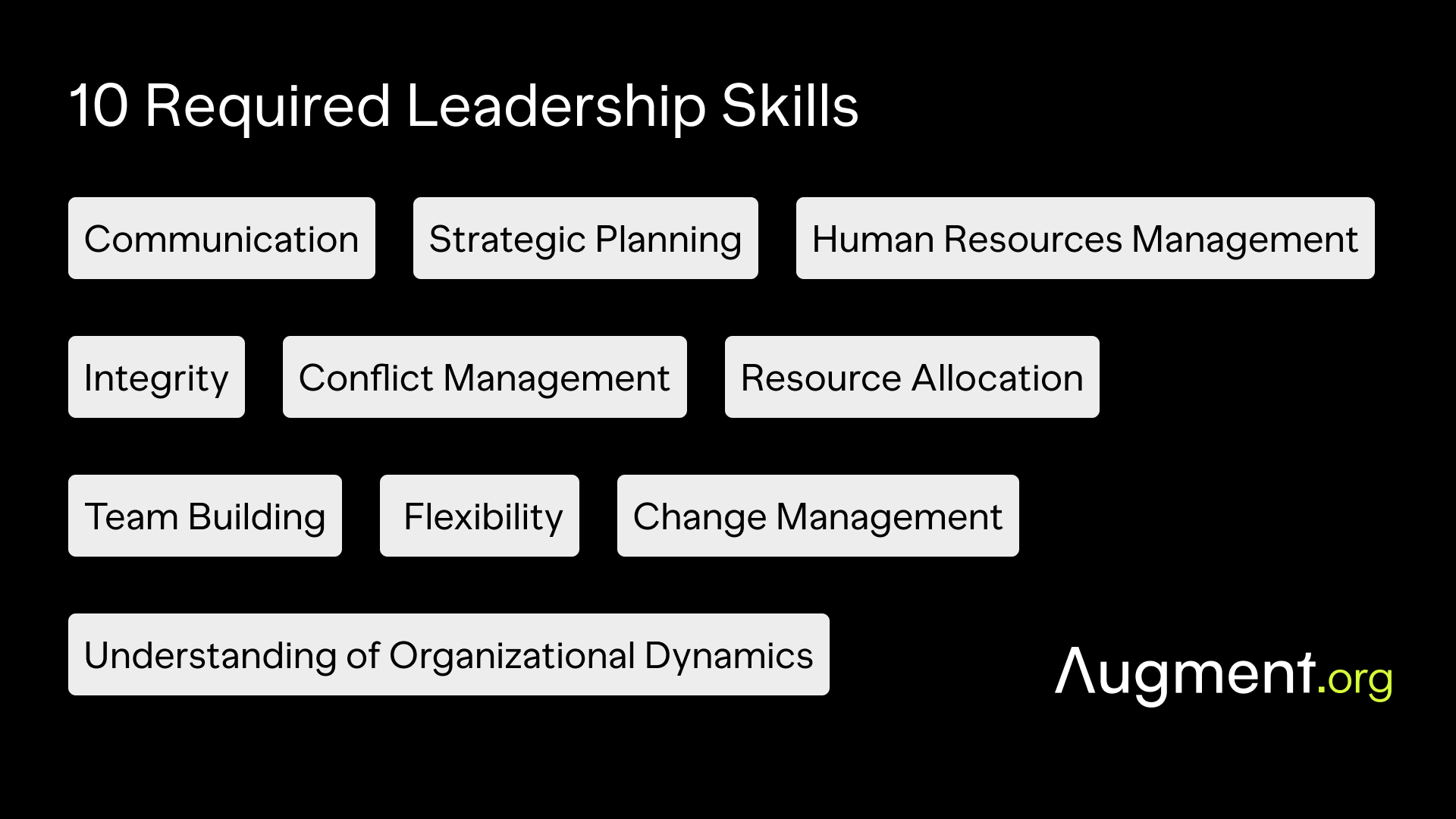What is Organizational Leadership?
Organizational leadership encompasses the methods and styles leaders use to inspire and guide their teams toward achieving strategic goals. Successful leaders set a clear vision, effectively manage resources, and foster a culture where every team member can contribute ideas and work towards the organization's overall success. Through strong communication, emotional intelligence, and problem-solving skills, organizational leaders can promote effective collaboration and drive innovative solutions.
Importance of Organizational Leadership
Strong organizational leadership sets the direction for a company and its employees. When organizational leaders make clear strategic goals, everyone is able to work towards the same vision. These leaders ensure that all parts of an organization work together smoothly.
Good leadership also boosts employee engagement by helping staff to feel more connected to their work and the organization's mission. Leaders help solve problems and make decisions that shape the future of an organization. Through their understanding of business and management, they are able to find new ways to grow and improve.
Organizational Leadership vs. Traditional Management
While both organizational leadership and traditional management play crucial roles in any company, they differ significantly in their approaches and outcomes.
- Direction & Vision
- Organizational leaders drive innovation and adapt to change.
- Traditional managers focus on stability and managing tasks effectively.
- Job Roles
- Organizational Leadership: Leaders often guide entire departments or organizations — think human resources managers or project managers. They tend to focus on long-term goals.
- Traditional Management: Managers might work as operations managers, making sure daily tasks align with company policies, or as marketing managers with a focus on specific organizational targets.
- Skill Sets
- Organizational Leaders have strong communication and interpersonal skills and are capable of motivating and influencing their teams.
- Traditional Managers require detailed business acumen and a knack for data analysis to optimize performance.
- Impact on Success
- Organizational Leadership: Effective organizational leaders create environments where employees are engaged and motivated to contribute to the organization's success.
- Traditional Management: Traditional managers establish and maintain an organizations operating structure and ensure the vision becomes a reality.
While organizational leaders create the vision, managers implement it. Both roles are needed, each playing an important role in an organization's success.

10 Organizational Leadership Skills
To lead an organization effectively, certain skills are required — each one plays a vital part in ensuring success. Here are some key skills that are critical for organizational leadership:
- Communication Skills: Leaders must be able to share ideas, listen to others, and negotiate effectively.
- Strategic Planning: The ability to set goals, develop plans to achieve them, and adjust those plans based on changing circumstances is crucial.
- Human Resources Management: Knowing how to recruit, motivate, and retain the best talent is essential for any leader in an organization.
- Ethical Judgment and Integrity: Leaders should have a strong sense of organizational ethics and personal integrity to build trust and lead by example.
- Conflict Management: Effectively resolving disputes and preventing potential issues are important for maintaining a productive team environment.
- Resource Allocation: Leaders must make smart decisions about how to distribute resources in order to successfully carry out plans and initiatives.
- Understanding of Organizational Dynamics: Recognizing how different parts of an organization work together and how changes can affect its overall function is key.
- Change Management: Leaders should be able to guide an organization through change, whether it's a shift in the market or internal restructuring.
- Team Building: The ability to build and maintain a strong, cohesive team is critical for achieving the organization's vision.
- Leadership Style Flexibility: Adapting leadership styles to suit different situations and individuals can be very effective for an organizational leader.
Each of these skills can be honed through experience, training, and education, such as obtaining a bachelor's degree in organizational leadership or engaging in advanced leadership courses and programs. Whether leading a team, managing human resources, or steering the entire organization, these skills are fundamental for anyone aiming to secure leadership roles and drive a company's success.
Book a call with our Program Director
Book a 15-minute call with our Program Director to discuss your goals and what the Augment MBA has to offer.
Speak to an advisorHow to Develop Your Organizational Leadership Skills
Building strong leadership skills can turn good leaders into great ones. Here's how you can develop the skills needed to lead organizations effectively:
- Pursue Education: Enroll in an organizational leadership bachelor's program or consider getting an advanced degree, like a master's in organizational leadership, to deepen your understanding and skills.
- Take Leadership Courses: There are many organizational leadership courses available that can teach you the latest in leadership theory and practice.
- Gain Experience: Seek out management positions, like an operations manager or marketing manager, to gain on-the-job experience.
- Learn from Leaders: Find a mentor or work with a management consultant to learn from their expertise and insights.
- Understand Your Business: Grow your business understanding by getting to know every part of your organization, from human resource management to project management.
- Work in Various Fields: Take jobs in nonprofit organizations, private sectors, or government agencies to broaden your experience.
- Self-Reflect: Regularly assess your leadership style and effectiveness. Are you an effective leader? What can you do better?
- Keep Learning: Organizational leadership is a field that's always evolving. Stay current with new strategies and technologies that can aid in organizational development and make you a more effective leader.
By following these steps and continually striving to improve, you'll develop the key skills necessary for top organizational leadership jobs and be well on your way to becoming an effective leader.